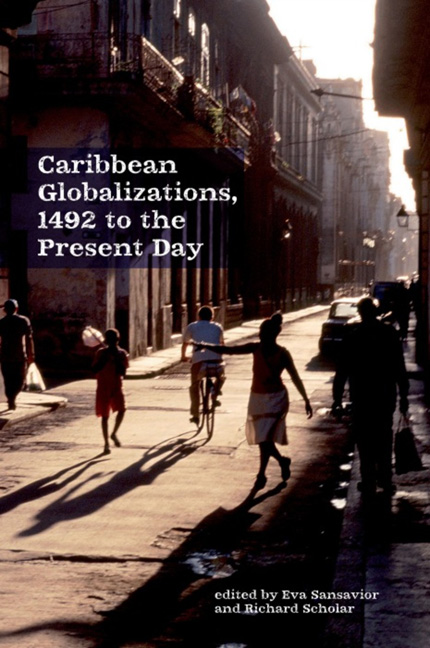Introduction
Summary
This volume studies various forms and conceptions of globalization in a range of Caribbean contexts from 1492, when Europeans first arrived in the region, to the present day. It aims, by this means, both to reflect on and to add to a growing body of literature concerned with the question of what kinds of global perspective the study of the Caribbean might require and reward. Three assumptions continue, either in spite of this literature or in ignorance of it, to dominate thinking about the relations between globalization and the Caribbean. The first of these assumptions says that the Caribbean is merely subject to the effects of globalization; the second, that this is a globalization made in the West; the third, that its imposition on the Caribbean has taken place in the last few decades. The volume contests each of these assumptions and the commonplace narrative that connects them. It starts from the hypothesis that, in reality, certain of the complex exchanges—cultural and social as well as political and economic—taking place in the context of contemporary globalization have long been a defining feature of the Caribbean archipelago and that the Caribbean may therefore be said to have shaped globalization just as globalization has shaped the Caribbean. The volume tests out this hypothesis in a series of discrete, though interconnected, case studies. Its aim is thus to help change prevalent ways of thinking, not only about the Caribbean, but also about globalization.
While the two terms collocated in the title of this volume are investigated in their interaction, each is seen here as a complex in its own right, a set of variously related elements. In what follows, there are to be found many Caribbeans, sharing family resemblances yet marked by specific differences. This reflects the reality of a region whose physical geography is as complex as the history, politics, and culture of its human settlements; it also reflects the state of the field of Caribbean studies, which contains within it the entire disciplinary spectrum of the contemporary social sciences and humanities, in implicit recognition of the complexity of its object of study.
- Type
- Chapter
- Information
- Caribbean Globalizations, 1492 to the Present Day , pp. 15 - 30Publisher: Liverpool University PressPrint publication year: 2015



